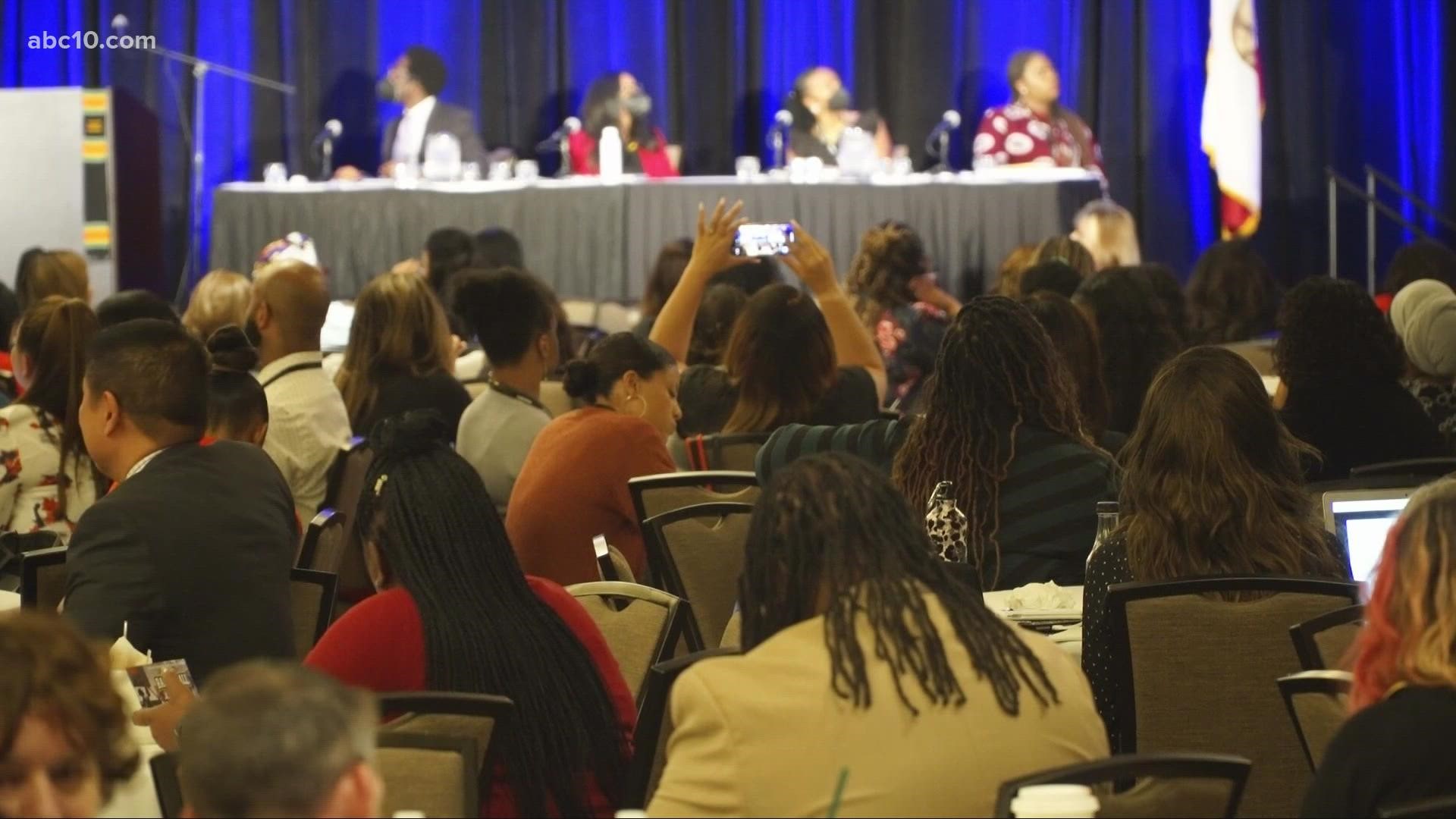SACRAMENTO, Calif — When it comes to education, students are not all the same.
Students, on all levels, enter classrooms with diverse backgrounds, abilities, talents, strengths and challenges. Schools can ensure equity in education by recognizing, respecting and attending to the diversity of the students they serve.
The California Association of African American Superintendents and Administrators (CAAASA), an organization with a group of educational leaders, is working to address this issue in education through public policy relative to the status and performance of Black students in California.
"Equity in education is important," Daryl Camp, president, CAAASA, said. "We do what's necessary and what we can do with the resources that we have to support education and educational environments from across the state. But, all of us have a role in supporting what's happening in our classrooms."
CAAASA organized a Professional Development Summit at the Sheraton Grand Sacramento Hotel from March 30 through April 1 to support educators statewide and improve educational equity. The annual summit includes general sessions, seminars and workshops with a special focus on helping Black students reach success.
"If you're doing better for African American students, invariably, students across multiple ethnic and racial groups will benefit," Camp said.
According to the National Equity Project, a leadership and systems change organization based in Oakland, working towards equity in schools involves:
- Ensuring equally high outcomes for all participants in our educational system; removing the predictability of success or failures that currently correlates with any social or cultural factor
- Interrupting inequitable practices, examining biases and creating inclusive multicultural school environments for adults and children
- Discovering and cultivating the unique gifts, talents and interests that every human possesses
California is still working to improve equity in all classrooms. In October 2021, State Superintendent of Public Instruction Tony Thurmond launched a statewide task force on improving Black student achievement in response to the impacts of systemic and institutional racism. The group is, specifically, working to address the school-to-prison pipeline, including suspension, chronic absenteeism and graduation. Other pressing issues include teacher diversity, racial achievement gaps, mental health and housing insecurity for students.
According to research published by the American Psychological Association in 2021, Black students are often subject to harsher discipline at school than white students, and those punishments can damage students’ perceptions of their school and negatively impact their academic success years later.
Researchers studied school records for more than 2,300 students at 12 schools in the U.S. They found 26% of Black students received at least one suspension for a minor infraction — such as dress code violations, inappropriate language or using a cell phone in class — over the course of the three years compared with just 2% of white students.
Black students are also more likely than other groups to be in classrooms with inexperienced teachers. That's based on a 2021 study from The Education Trust, a national nonprofit that works to close opportunity gaps that disproportionately affect students of color and students from low-income families.
As schools nationwide continue to face teacher shortages, disparities in education could become even more prevalent.
Even though Black educators are already underrepresented in the teaching profession, a National Education Association survey shows, a disproportionate percentage of them (62%) plan to leave classrooms. Some reasons include work stress, burnout, and issues related to the COVID-19 pandemic significantly impacting underserved and marginalized communities.
Sonjhia Lowery, who lives in West Sacramento, has more than 25 years of education experience. That includes being a coach, teacher, school administrator, vice principal, principal, and superintendent, serving the Northern California region. She, along with more than 400 other educators, attended the CAAASA conference in hopes of making positive changes in the education system.
"Our kids deserve the best," Lowery said. "The kinds of hardships that they face every day are things centered around systemic racism. We're doing our best each day to provide each student with what they need, when they need it."

